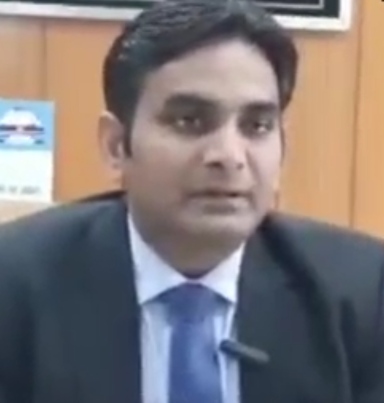HR Bairwa, IAS, DC Kangra’s Landmark Directive to Expedite Revenue Cases Should Be Implemented Across All Districts of Himachal Pradesh








HR Bairwa, IAS, DC Kangra, Issues Landmark Directive to Expedite Revenue Cases

In a significant move aimed at ensuring justice and transparency, HR Bairwa, IAS, Deputy Commissioner (DC) of Kangra, has issued strict instructions to officials not to unnecessarily delay revenue cases under the pretext of procedural bottlenecks. This directive comes as a much-needed relief for countless individuals, particularly those from economically weaker sections, who have long suffered due to prolonged pendency of such cases.
For years, revenue-related matters—ranging from land disputes to mutation approvals—have often languished in administrative offices, leaving many applicants in a state of uncertainty. The affected parties, predominantly from rural and low-income backgrounds, are often unable to afford the legal or bureaucratic expenses required to expedite their cases. This systemic delay not only impacts their livelihoods but also erodes public trust in administrative institutions.
By addressing this chronic issue, HR Bairwa’s initiative is a step toward a more equitable and efficient governance system. The directive emphasizes swift resolution and adherence to time-bound frameworks, signaling a shift towards people-centric administration.
A Strong Endorsement for Statewide Implementation
The decision has received widespread appreciation from various quarters, including prominent social activists and anti-corruption advocates. Rajesh Suryavanshi, Chairman of the Society for Human Welfare and Mission Against Corruption, Himachal Pradesh, hailed the move as a landmark step in restoring faith in the system.
“Unnecessary delays in revenue cases disproportionately affect the most vulnerable sections of society—those who cannot afford bribes or repeated visits to government offices. This directive is a welcome relief for such people. However, the impact of this decision must not be limited to a single district,” said Suryavanshi.
He called on Chief Minister Thakur Sukhwinder Singh Sukhu to take immediate steps to implement similar directives across the entire state. “The Chief Minister should ensure that this progressive policy is uniformly adopted in all districts of Himachal Pradesh. This will not only expedite pending cases but also send a strong message that the administration is serious about addressing public grievances efficiently,” he added.
Voices of the Marginalized
Rajesh Sharma, a farmer from a remote village in Kangra, expressed relief upon hearing the news. “My land mutation case has been pending for over five years. I have spent thousands of rupees traveling to the Tehsil office, but every time, there’s a new excuse. This decision gives us hope that justice might finally be served,” he said.
Similarly, Kamla Devi, a widow awaiting the partition of her late husband’s ancestral land, stated, “Officials often ask for unnecessary documents or delay the process without explanation. I hope this new directive ensures that people like me are not left at the mercy of corrupt practices.”
A Roadmap for Implementation
Suryavanshi also outlined key measures to ensure the success of the directive. He emphasized the need for regular monitoring of pending cases, the establishment of accountability mechanisms, and the introduction of digital platforms for case tracking. These measures, he argued, would enhance transparency and empower citizens to access real-time updates on their applications.
Public Demand for Change
The directive has sparked discussions across the state, with many urging the government to act swiftly. Citizens and social organizations alike have voiced their support for a standardized framework to address revenue case delays. “Uniform implementation of this directive across Himachal Pradesh will ensure justice for all, regardless of their financial status or geographical location,” Suryavanshi reiterated.
Toward a Citizen-Centric Administration
HR Bairwa’s directive, bolstered by the advocacy of leaders like Rajesh Suryavanshi, marks a significant step towards responsive governance. If implemented effectively, this initiative could become a model for other states to emulate, fostering a culture of timely justice and citizen-centric administration.
This progressive decision has the potential to transform the lives of thousands of families, restoring their faith in the system and paving the way for a more inclusive and transparent governance model.



